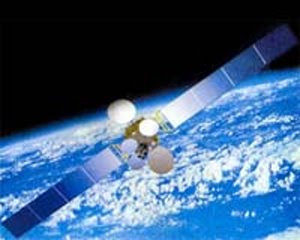
The Nigerian government has concluded negotiations with the Chinese government’s ExIm Bank and the China Great Wall Industries Corporation for two communications satellites thought to be worth U.S.$550 million .
The Nigerian minister for communications, Adebayo Shittu, told journalists in Abuja, the Nigerian capital, that it is hoped that the contract for the two satellites will be signed by the end of January 2018.
Once the contract is signed it is expected that the two satellites will be ready for launch within two years.
Adebayo Shittu described the deal to journalists, explaining that it is the latest iteration in a series of negotiations with Chinese officials. These negotiations have come under scrutiny in the Nigerian press because of the costs involved amidst the parlous state of Nigerian public finances, endemic corruption, and allegations of mismanagement.
There have also been concerns about the under-utilisation of satellite technologies in Nigeria, a large underdeveloped country where satellite utilization should, in theory, provide a significant leapfrog for the provision of advanced infrastructure.
In an earlier iteration of the Nigerian-Chinese negotiations, it was agreed that Nigeria would contribute 15 percent of the U.S.$550 million costs, causing an outcry in Nigeria. As a result, in the final negotiation it was agreed that China will bear the full cost of the manufacture of the satellites in return for a yet-to-be-agreed stake in the Nigerian government-owned satellite communications company, Nigcomsat.
“This is a very big business opportunity … which is … why they have agreed that even without our ability to contribute 15 percent they are prepared to pay the entire sum of $550 million for the procurement of the two new satellites for Nigeria,” Shittu told reporters.
Nigeria “has nothing to lose because we are not putting anything into it in terms of financial resources,” he added.
“The first thing is that we want to make a profit, we want to capture the local market and we also want to capture the African market,” Shittu continued, referring to Chinese and Nigerian plans to compete with satellite communications companies from Europe, Israel, United Arab Emirates, Saudi Arabia, and the United States for the growing African market.


